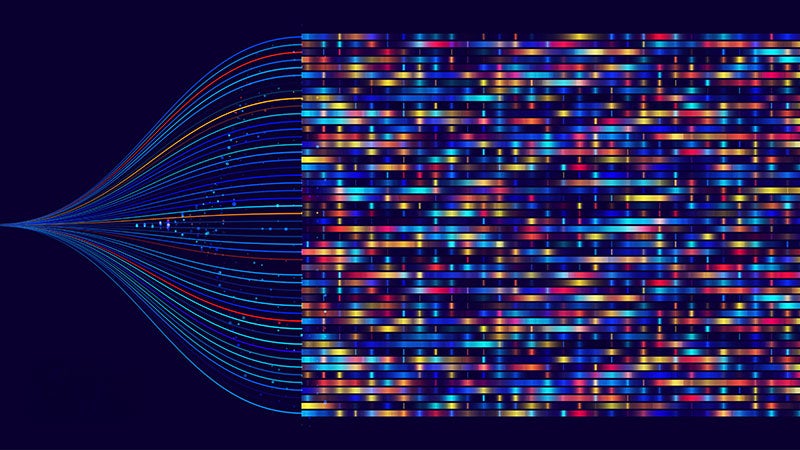
When Rosalind Picard, a pioneer in artificial intelligence and emotional computing at MIT, visited Tulane University in 2023 to receive an honorary doctorate, she did more than deliver a commencement speech. She inspired a class that speaks to the need for ethical reflection in an era of rapid technological change.
Tech Ethics: What Is a Better Future? is a new interdisciplinary course taught by Matt Escarra of the School of Science & Engineering (SSE) and Rob Lalka of the Freeman School. Debuting in fall 2025, the course is cross listed between SSE and Freeman, marking a unique academic collaboration between the two schools. It challenges students to engage deeply with the ethical dimensions of emerging technologies, preparing them to become thoughtful leaders in fields where the stakes — human, social and environmental — are higher than ever.
“This course brings Freeman and SSE students together to tackle big questions at the intersection of business and technology,” Lalka said. “It draws on proven models from what’s worked at Yale and MIT, and it’s designed specifically for the in-depth discussions and debates that are hallmarks of the Tulane experience.”
The course structure is divided into two parts. The first six weeks are grounded in materials from Yale’s Life Worth Living curriculum, where students grapple with fundamental ethical questions. This phase encourages students to reflect on their personal values and assumptions before engaging with the complex ethical dilemmas posed by technology.
The second half transitions into specific technological domains where these ethical frameworks are applied. Students will examine issues like the future of labor in the age of AI, ethical dilemmas surrounding autonomous weapons, the environmental and societal impacts of energy technologies, and the challenges of regulating social media and other platforms. Each topic is explored through a dual lens: the technical capabilities and the human consequences.
“Oftentimes, you see technologists that will, instead of asking, ‘Should I? they ask, ‘Can I?” Lalka said. “From this science and engineering perspective, there is an important need and opportunity to approach the ‘Should I’ question as much as the ‘Can I’ question.”
One of the course’s central assignments tasks students with selecting a technological topic they are passionate about and analyzing it through the ethical frameworks developed in class. Students present their findings at the end of the semester, creating a peer-learning environment where everyone gains from diverse perspectives.
“We’re not going to try and come to consensus or come up with one answer,” Lalka said. “We will engage with the tough issues, directly, honestly, openly and candidly.”
For Tulane, the course represents a model for future interdisciplinary collaborations. It has received broad support, including grants from the Yale Life Worth Living program and the Tulane Innovation Institute. Classes will be held in the newly opened Schwartz Family Center for Experiential Business Learning, a state-of-the-art facility designed to foster hands-on learning and cross-disciplinary engagement.
“We’re planning to offer it in the fall, at least for the next few years, so this is not a one-time offering,” Escarra said. “We hope to grow the idea with sections and smaller class sizes in a seminar format.”
Initially, the course fulfills elective requirements for the Entrepreneurship Minor in the Freeman School and counts toward the Engineering Physics major in SSE. However, Escarra and Lalka envision it expanding into other parts of Tulane’s curriculum over time.
“Technology ethics is an area where we can build even more capacity within SSE, and there’s strong interest in doing that,” Escarra said. “Some of our [SSE] courses already touch on these topics, but this class gives us the chance to engage with them in a sustained and focused way, with personal reflection, technical insight, and a view on societal impact that our business colleagues bring, all helping our Tulane-trained technologists create a future we can be proud of.”
In a world where technologies like AI, genetic engineering, and autonomous weapons are evolving faster than regulatory frameworks or societal norms can keep up, the need for ethically grounded leadership has never been more urgent. Escarra and Lalka believe that Tulane students are uniquely positioned to lead these conversations, not just within academia, but in the boardrooms, laboratories and public forums where future decisions will be made.
“We would rather [students] are asking better questions, smarter questions, more thoughtful questions, than rushing to answers,” Lalka said. “That is exactly the substance of the class.”

